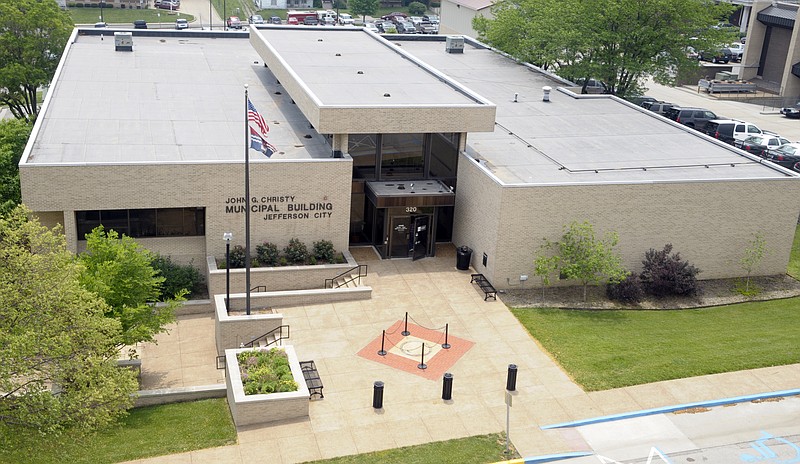The Jefferson City Council encouraged residents Monday to learn more about the fuel tax and vote on the proposition next month.
The City Council approved a resolution that "provides education information on Proposition D and encourages voters to inform themselves on the issues and to vote" Nov. 6.
State legislators approved the proposed fuels tax increase in May, sending it to the voters for final approval.
If approved next month, the state would increase its tax by 2.5 cents each year during a four-year time period - resulting in a 10-cent per gallon increase by July 2022. Missourians currently pay 17 cents on the sale of each gallon of gasoline or diesel fuel.
Funds would be restricted to paying for road and bridge projects, paying the actual cost of Missouri Highway Patrol enforcement of road laws, and the cost of collecting the tax, the resolution states.
"It is a critical issue for the state of Missouri, so I think people need to get engaged and find out what it does," Ward 4 Councilman Ron Fitzwater said. "It's very important for our city, county and our state."
If voters approve Proposition D, the state could earn $124 million annually for local road and bridge projects. Jefferson City could receive $677,594 annually for similar projects, it notes.
The resolution does not state if the council supports or opposes it.
The Cole County Commission approved a similar resolution last month supporting the passage of Proposition D.
Southside rezoning
The council also approved rezoning portions of the southside neighborhood - 41 acres consisting of 139 properties - from RA-2 Multi-Family Residential to RS-4 Single Family Residential. The area is bordered mostly by U.S. 54, Jefferson Street and West Tanner Way.
Ward 2 Councilwoman Laura Ward abstained from the vote. Ward 5 Councilmen Jon Hensley and Mark Schreiber were not present at Monday's council meeting.
The rezoning complies with the 20-year Historic Southside/Old Munichburg District and Neighborhood Plan - introduced by Capital Region Medical Center - which proposes rezonings, improving roads and encouraging commercial and residential developments. The city adopted the plan in 2017.
The area consists mainly of single-family residences, but there are some multi-unit residences sprinkled throughout the neighborhood.
Non-conforming properties will be grandfathered in and can still be used as a multi-unit residence. However, if a property owner voluntarily rebuilds the structure or converts it to a single-family residence, then it must comply with the new zoning codes.
If a multi-unit residence is destroyed by natural causes, Barron said, then it can be rebuilt and used as a multi-family structure.
City staff hope the rezoning will prevent developers from constructing apartment buildings and discourage future conversions of current homes to multiple units, he added.
The Jefferson City Planning and Zoning Commission recommended approved the proposal in August.
This is one of five proposed rezonings city staff plans to pursue in accordance to the southside plan.
Trash service amendment
Also on Monday, the City Council approved a substitute bill by a 7-1 vote to a proposed amendment to the trash service ordinance.
The substitute bill states the responsible party should obtain and maintain trash service while the residential unit is occupied. It notes the amendment would not prevent a property owner from requiring an occupant to obtain and maintain the trash service.
After rental property owners expressed confusion over the original bill last month, the council placed it on the informal calendar. The original bill recommended changing the definition of "responsible party" to "the owner of the property is responsible to obtain and maintain solid waste or trash service."
Some property management owners thought the original language implied they could not make tenants get and pay for their own trash service, requiring landlords to provide the service. City Councilor Ryan Moehlman said landlords can still establish private contracts with their tenants that state the tenants are responsible for establishing and paying for the trash service.
Ward 1 Rick Prather voted against the bill.
"I appreciate the substitute and it's come a long ways from where it's come from but ultimately I'm just not comfortable with taking the responsibility from the tenants and putting it onto the owners and the property managers," he said.
City staff hope the substitute bill will make it easier for the city to summons the responsible party if a trash service is not set up or corrected after the city sends a violation letter. They also hope the amendment will decrease the number of trash nuisance violations and encourage landlords to ensure tenants have the city-mandated trash service.

